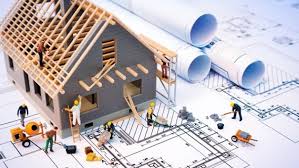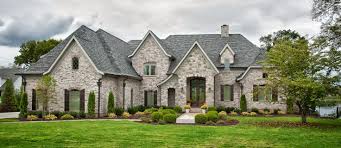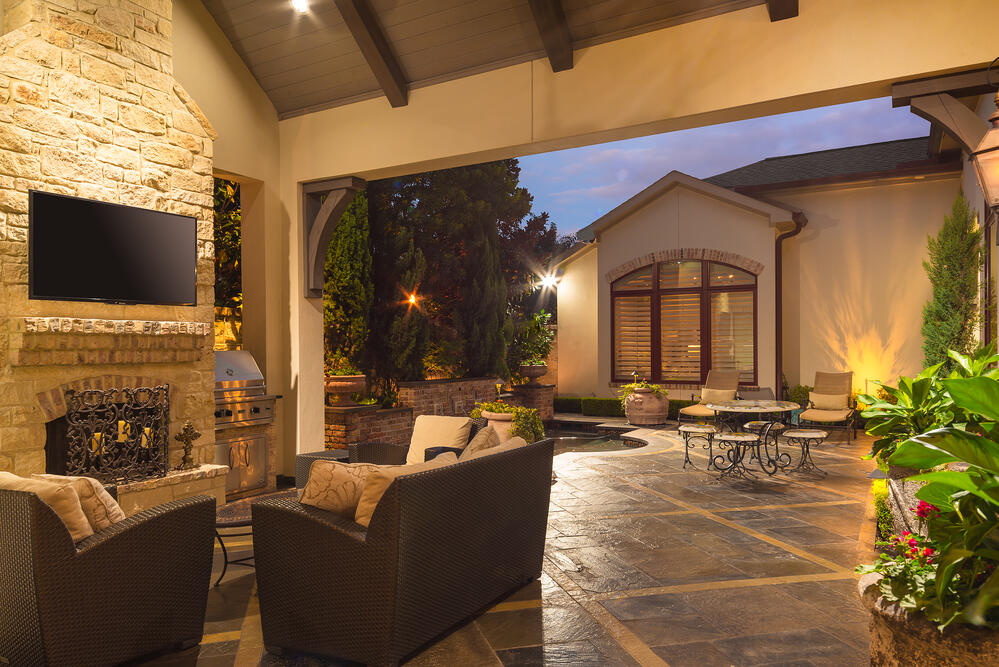Why is Custom Home Building Different from Other Types of Residential Constructions?
Building a custom home is not like building any standard residence. It is a special project which requires special skills. This is not something that every other builder can handle and before you employ someone’s services to start on this undertaking, you should get all the details crystal clear.
The vetting process for the perfect builder for your home should begin right from the point when you go to meet the first candidate. You need to do your level best to understand their experience, creativity, licensure and whether they will be able to give you your dream home at a reasonable price. We understand that gauging all of this can be hard at first. That is why we have come up with a list of things you can ask your would-be builder to ensure they can give you the residence you desire:
1. License and Insurance
This is the first thing you should ask your potential builder. Do not assume that because they have a license to build in some other area, they will have the permission to build in yours. Clarify this point right at the beginning. Also, ask them if they are insured. Most will be but you also need to find out what aspects of the building process are covered by the insurance.
You should also ask about the insurance of the subcontractors the builder will use to construct your home. Once you have established that the builder is legally permitted to undertake construction in your area and has the correct insurance to accommodate any eventualities, you can proceed to the next question.
2. Duration of Working Experience
This is a very important factor to consider when selecting the right builder for your custom home. Most builders have a specific area that they focus their services in and if you can find one who has ample experience in building, then region then there are several benefits you can enjoy.
First, they will know what the popular trends and customization features are popular in the market. Second, they will know what kind of soil is prevalent in the region and will make the construction plan accordingly. Third, they will know if the area is prone to any natural disasters like earthquakes, floods, cyclones etc. and will make amends in your basic plan to prepare for these. Once you find a well-experienced builder, you can move the planning to the next phase.
3. Previous Work
Ask the builder if they can show you a custom home they have previously constructed. Most good custom home builders will be able to do that. When they take you to the home, check the quality of work, finishing and any specialties that they might have worked on for this custom home that you may want for your own. You can also talk to the owners of the home and ask them how their experience was. This is sure to give you a clearer understanding of how your builder works. After you have fully satisfied yourself with the portfolio and reputation of the builder, it is time to talk budget.
4. Cost of Construction
The cost of building a custom home will naturally different with every project. Also, you have to consider that you will want to change something or the other while the project is underway. So, it is best to leave some space open for impromptu customizations and decide on a reasonably flexible budget.
Now, ask the custom builder if they can accommodate all your requirements within that budget. Don’t go for the lowest quote in thinking you’ll save a few extra bucks because you will end up losing a lot more than you would expect. At the same time, don’t go for the priciest one either. Thinking that you will get the best of everything if you just spend enough is misguided. Pick one that falls just right in between your margins.
5. Warranties
Most trustworthy and reputable custom builders will give you at least 1 year’s warranty but can give you as many as 10 years as well, at least structurally. Also, ask them what is covered under the warranty. Get this answer in writing from them on the contract to ensure future safety. If you keep this in mind, then even if there is a problem with the house later on, you will not have to spend a dime to fix it.
6. Method of Working
This is regarding how often the primary custom builder is involved with the project. Ideally, they should come and oversee some of the work every day. But, you should know that most custom builder, especially the good ones, will not be able to give your project that much time as they probably have projects going on elsewhere. So, you should negotiate with them and decide upon a fixed routine to follow for the entire duration of the build. Something like 4-5 visits per week is good.
Also, make sure that they give you regular, preferably weekly updates and that they would be available on phone or through mail if you even need to reach them.

Trustworthy and Service-oriented
The homeowner/homebuilder relationship is (or should be) a close one. You’re collaborators on a very personal project, and the builder you choose should show genuine commitment and desire to be your trusted advocate through the entire journey. They need to care about your home as if they were building it for their family, and they need to handle your resources with as much respect and responsibility as if they were their own. How do you know when you’ve found a builder like this? Above all, they will take the time to ask questions. They will listen to what’s important to you, and then adopt those priorities. The only agenda that should be on that construction site is yours: your builder should be acting as your proxy at all times. If you can really trust your homebuilder, you are safe from ending up as another construction cautionary tale.

The Super-Important Details You Need To Consider During the Custom Home Building Process
– Create a solid design. What is the function of this home? Is it a summer getaway that you may sell one day? Or, is it a home that you will grow old in. Plan for the present and the future.
– Make sure your lifestyle can handle the process of building a new home. Building a house can take a while. so make sure your family and your pocketbook are stable.
– Come up with a system to organize and keep track of everything. Staying organized will save your sanity.
– Does every room have a purpose? Don’t just build a room to have it there. Make sure to optimize the space in your new home.
– Find a team that you feel comfortable with. Don’t your dreams of building your own house into the hands of someone you don’t trust. Sit down with the people who will be working with you and get to know them.
– Inspect the ground you want to build on and the rules that come with it. There are laws and codes that your house will have to meet. The faster you understand those requirements, the better.
– Do your homework and prepare to spend your money. Building a house isn’t cheap, but it is worth it. Don’t be caught off-guard by a surprise expense. The more you know about the home building process, the better off you will be.
– Keep around 10% of your budget for unexpected expenses.
– Don’t forget about landscaping. Building your house is the main project. But have an idea of what you would like the entire lot to look like.
– Create a list of what you want and how bad you want it. Is granite a must-have that your are going to splurge on? Decide this now to help you sort things out later.

Know what you are getting into.
I don’t want to scare you if you’ve decided to build. In fact, for the most part I really enjoyed our building process. That being said, there are a lot of things you need to consider before you take on building a house. The first one being the massive time commitment building is. If you are building a custom home like we did it is easily at least a part time job (some weeks full time!). We knew it would be time consuming, but had no idea just how time consuming. The early stages of designing the home weren’t quite as busy, but once the house was framed and construction was moving, it got crazy quickly. If you are in a situation where you are already overwhelmed with work and kids and life commitments, it might not be the best time to build. You’ll want to spend a lot of time at the house making sure things are getting done correctly so factor that into your decision.
This was the most difficult part for us! Which leads me to my next warning. Building is hard on a marriage. Money flies when you are building so there is financial stress. If you are like most people you’ve worked incredibly hard and saved money for years to be able to build a home (15 years for us!). Stressing about finances always causes strain on a marriage and costs always end up being higher than you think they will be when you build. It can also be stressful when you don’t agree on design decisions. That wasn’t an issue for us because my husband didn’t care what the house looked like so I had free reign on all things design, but if you both care and have strong opinions that will be a challenge. For us the most difficult part was that we were both just so overwhelmed and exhausted from how much work it was that we sometimes took it out on each other.
Months after we moved in and things had settled down I remember my husband and I joking about how we had decided we liked each other again. 😉 Like I said before, I’m not telling you these things to scare you. I just think knowing what you are getting into and possibly talking to your significant other about how you will deal with these issues when they come up is a good thing!
Building and Constructing Your Custom Home
After you approve your custom design, it’s time to start building your home! Well, not really…
During this transition phase from design to build, your builder typically will handle the homeowner’s submission and permitting. We do this to ensure that nothing delays your build such as issues with the city. This phase is much easier on your end, but there are a few considerations you must be aware of:
- Too many change orders could delay your build. Almost always, you’re going to want to make changes to your home’s design after approval and well into the construction phase; it’s perfectly normal! However, if you’re having too much trouble making final selections in this phase, it might delay the construction.
- Excellent communication with your builder avoids headaches. “Lost in translation” is a famous saying (and a critically acclaimed film) for a reason. Sometimes, there is a disconnect between construction and design. Moreover, there might be a disconnect between you, the homebuyer, and the designer, which then the project manager has to relay, which then affects the general contractor. You start to see how things can get jumbled fairly quickly. That’s why having direct, open-line communication and liking your builder’s communication style are critical to avoiding headaches (if any) down the road.
- Will your new home be energy efficient? Besides being more environmentally friendly, LEED-certified homes can save you some serious bucks. If you’re interested in building green, it’s important to find a builder who builds green. These buildings, which use specific building materials, offer a multitude of benefits, including:
- Better air quality for your family (fewer allergens)
- Better return on investment (higher resale value)
- Better water efficiency (lower water bill)
- Better energy efficiency (lower electric bill)